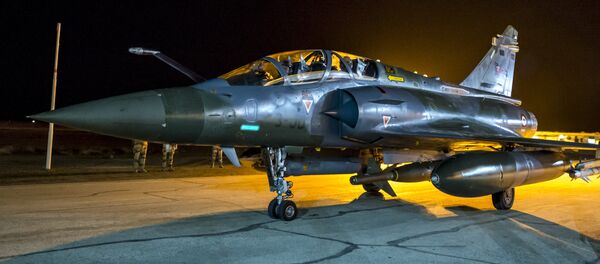The US proposal, sent to Moscow on Monday, calls for sharing targets and coordinating an extended bombing campaign against the terrorist organization al-Nusra Front, according to a US media report citing an Obama administration source. The United States reportedly also proposed that Russia pressure the Syrian government of President Bashar Assad to stop carrying out strikes against US-supported rebels.
On Wednesday, Daesh smashed an attack by the US-backed New Syrian Army forces seeking to recapture Abu Kamal, a crucial border crossing between Syria and Iraq. The terror group also seized crates of US ammunition, mortars and a vehicle.
Following the defeat, "The idea that the United States now has any additional bargaining chips in its interactions with Russia/Syria is completely unrealistic. Indeed, its plans for regime change in Syria seem to have come apart worse over the past two weeks than ever before," Cobban observed.
The New Syrian Army defeat, Cobban noted, undermined the plan leaked to US media on Thursday to offer Russia increased military cooperation in Syria in return for Russia getting the government of President Bashar Assad to stop bombing US-supported rebels, including the New Syrian Army.
"My best guess is that this overture was prepared quite a while ago and delivered on Monday, at the same time the Pentagon was making its final preps for the ‘big’ assault by the New Syrian Army on the Islamic State positions at Abu Kamal," Cobban stated.
Had the New Syrian Army operation gone well, then the Obama administration would have had some significant new bargaining chips to put into its negotiation with Russia and Syria, but the defeat destroyed that plan, Cobban suggested.
"This implicitly seems to buy into the original Russian notion that it was better to have Assad still in power than have Islamist extremists take over all of Syria," Eland commented.
The United States would be able to provide better targeting and intelligence than the Russians are likely have on al-Nusra Front and a cooperative campaign to eradicate them, Eland pointed out.
"The big question is not whether Russia will come through, but whether they can bring along the Assad regime," he noted.
Assad has always wanted to destroy the so-called "moderate" US-backed rebels so that he could say the choice was only between him and Islamist extremists to rule Syria, Eland concluded.




